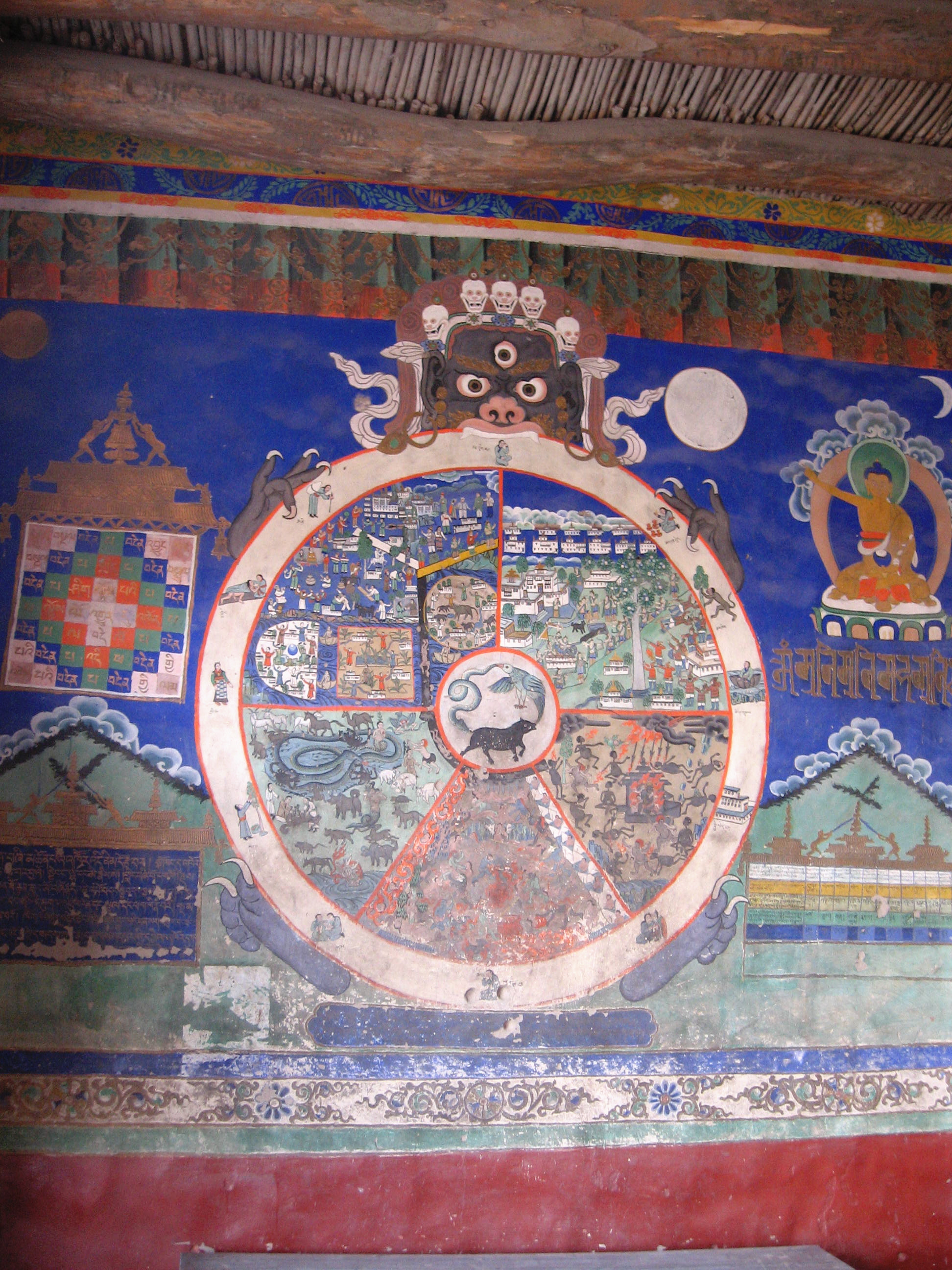https://en.wikipedia.org/wiki/Three_poisons
The three poisons (Sanskrit: triviṣa; Tibetan: dug gsum) or the three unwholesome roots (Sanskrit: akuśala-mūla; Pāli: akusala-mūla), in Buddhism, refer to the three root kleshas of Moha (delusion, confusion), Raga (greed, sensual attachment), and Dvesha (aversion, ill will).[1][2] These three poisons are considered to be three afflictions or character flaws innate in a being, the root of Taṇhā (craving), and thus in part the cause of Dukkha (suffering, pain, unsatisfactoriness) and rebirths.[1][3]
The three poisons are symbolically drawn at the center of Buddhist Bhavachakra artwork, with cock, snake and pig, representing greed, ill will and delusion respectively.[4]

